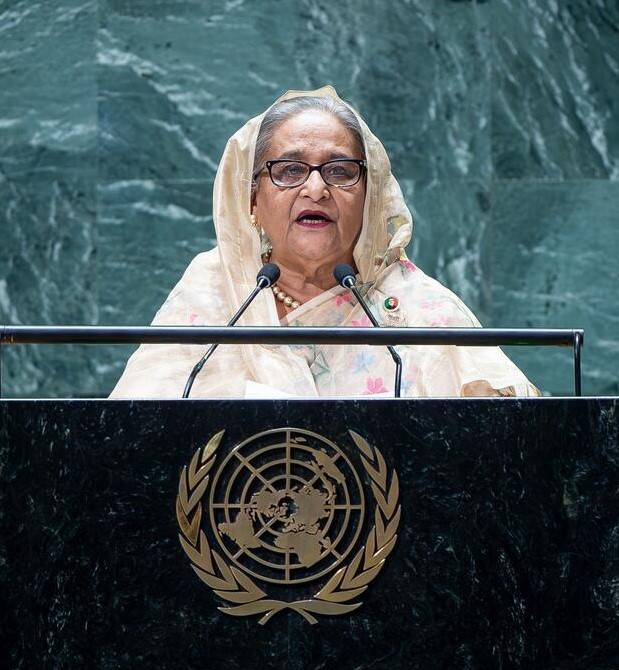Bangladesh’s former prime minister Sheikh Hasina has blamed the United States for her ouster from power.
In a message to Bangladeshis accessed by NDTV and released on Aug. 11, Hasina said the U.S. attempted to remove her from power after she refused to cede control of Saint Martin’s island, which would have allowed the U.S. to “sway over the Bay of Bengal.”
Hasina, who has sought refuge in India, said she could have remained in power after surrendering Saint Martin’s island.
Saint Martin Island, an area of about 3 square kilometers, is the southernmost part of Bangladesh located on the northeastern section of the Bay of Bengal.
The ousted Awami League leader said she fled the country to avoid the loss of more lives and resources.
“Maybe, if I had stayed in the country, more lives would have been lost. I have removed myself. You were my strength, you did not want me, so I have left,” she said. She said she did not want to see a procession of dead bodies.
However, she also warned the nation against the radicals. “I beseech [to] the people of my land, please do not be manipulated by radicals.”
The ousted premier has vowed to return to Bangladesh once the situation improves.
The Awami League leaders and sources close to Hasina also believe that the U.S. was behind Hasina’s removal.
The sources say that the appointment of banker and Nobel Laureate Muhammad Yunus as the new interim head of Bangladesh, who had a loaded relationship with Hasina, also confirms the U.S.’ role in the developments.
Bangladesh has a long history of political upheaval and coups.
In 1947, the Partition created East Pakistan.
The Awami League in the 1970 elections, secured 167 out of 169 East Pakistani seats, gaining control of the National Assembly.
The Indo-Pak war of 1971 concluded on December 16 with the creation of the new nation of Bangladesh.
In 1972, Sheikh Mujibur Rahman returned from captivity in Pakistan and took leadership, forming an Awami League government. He was assassinated in 1975.
General Ziaur Rahman eventually took control of Bangladesh. He was assassinated in 1981.
In 1982, General Ershad seized power until a popular uprising overthrew him in 1990.
From 1991-1996 and again from 2001-2006, Khaleda Zia, the widow of Ziaur Rahman, led the country. Her main rival during this time had been Hasina, the daughter of founder Mujibur Rahman.
In 2007, the military staged a coup after widespread political unrest and backed a caretaker government that ruled the country for two years until Hasina took power. (PressTV.ir)













